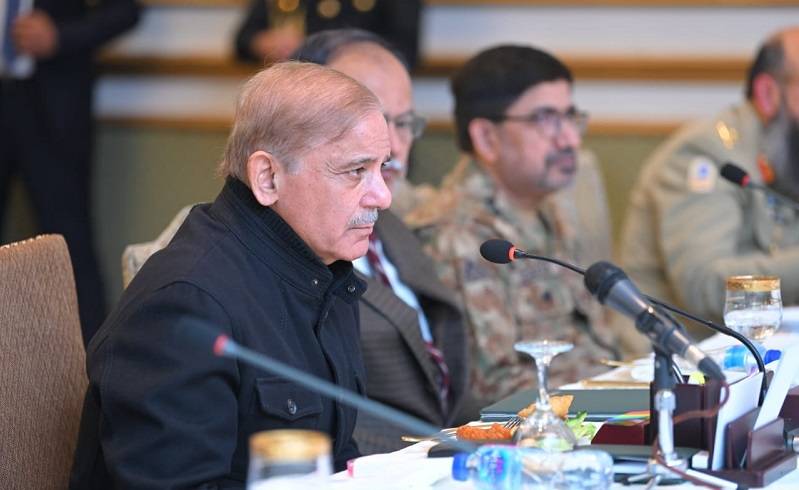
Though Defence Minister Khawaja Asif has ruled out the possibility of immediately imposing emergency in the country, the federal cabinet on Friday contemplated using the ultimate weapon amidst an escalating confrontation.
The members of the ruling clique, in a meeting chaired by Prime Minister Shehbaz Sharif, deliberated upon the current unrest in the country, and came up with different proposals, including imposition of an emergency rule.
Most of allied partners were not in favour of using the option at this political juncture, during the meeting, sources privy to a meeting shared with The Friday Times.
The said option came under discussion but it was not decided to implement it forthwith, according to a cabinet member desiring not to be named.
It may be noted here that Asif, in his press conference a day earlier (Thursday) remarked that emergency is a constitutional option, but that a martial law wasn't a possibility.
The emergency provision is a part of the Constitution, with part X covering the provisions. The section comprises six articles, from Article 232 to Article 237, three of which are of especially important.
Article 232 deals with the emergency, which is pronounced in two distinct situations. One, war or external aggression and, two, internal disturbances beyond the power of a province to control.
Read this too: ‘Relief’: IHC Grants 2-Week Bail To Imran Khan In Al-Qadir Trust Case
If an emergency is to be pronounced because of internal security conditions of a province, then the provincial assembly concerned is required to pass a resolution.
The same suggestion was also slightly floated in a hurriedly called meeting of the Pakistan Democratic Movement.
Some of the members also proposed a ban on the Imran Khan-led PTI but this suggestion was not given much weightage by most of the participants, the member continued.
However, he maintained, the ruling alliance reached a conclusion that it will stage a demonstration in front of the Supreme Court over its 'unjust behaviour'.
This decision was taken shortly after the Islamabad High Court granted Imran an interim bail for two weeks in the Al-Qadir Trust case.
The decision was reached at a time when the government has already imposed Section144 in the federal capital. The imposition was in response to escalating unrest and a measure to maintain law and order.
The members of the ruling clique, in a meeting chaired by Prime Minister Shehbaz Sharif, deliberated upon the current unrest in the country, and came up with different proposals, including imposition of an emergency rule.
Most of allied partners were not in favour of using the option at this political juncture, during the meeting, sources privy to a meeting shared with The Friday Times.
The said option came under discussion but it was not decided to implement it forthwith, according to a cabinet member desiring not to be named.
It may be noted here that Asif, in his press conference a day earlier (Thursday) remarked that emergency is a constitutional option, but that a martial law wasn't a possibility.
The emergency provision is a part of the Constitution, with part X covering the provisions. The section comprises six articles, from Article 232 to Article 237, three of which are of especially important.
Article 232 deals with the emergency, which is pronounced in two distinct situations. One, war or external aggression and, two, internal disturbances beyond the power of a province to control.
Read this too: ‘Relief’: IHC Grants 2-Week Bail To Imran Khan In Al-Qadir Trust Case
If an emergency is to be pronounced because of internal security conditions of a province, then the provincial assembly concerned is required to pass a resolution.
The same suggestion was also slightly floated in a hurriedly called meeting of the Pakistan Democratic Movement.
Some of the members also proposed a ban on the Imran Khan-led PTI but this suggestion was not given much weightage by most of the participants, the member continued.
However, he maintained, the ruling alliance reached a conclusion that it will stage a demonstration in front of the Supreme Court over its 'unjust behaviour'.
This decision was taken shortly after the Islamabad High Court granted Imran an interim bail for two weeks in the Al-Qadir Trust case.
The decision was reached at a time when the government has already imposed Section144 in the federal capital. The imposition was in response to escalating unrest and a measure to maintain law and order.

